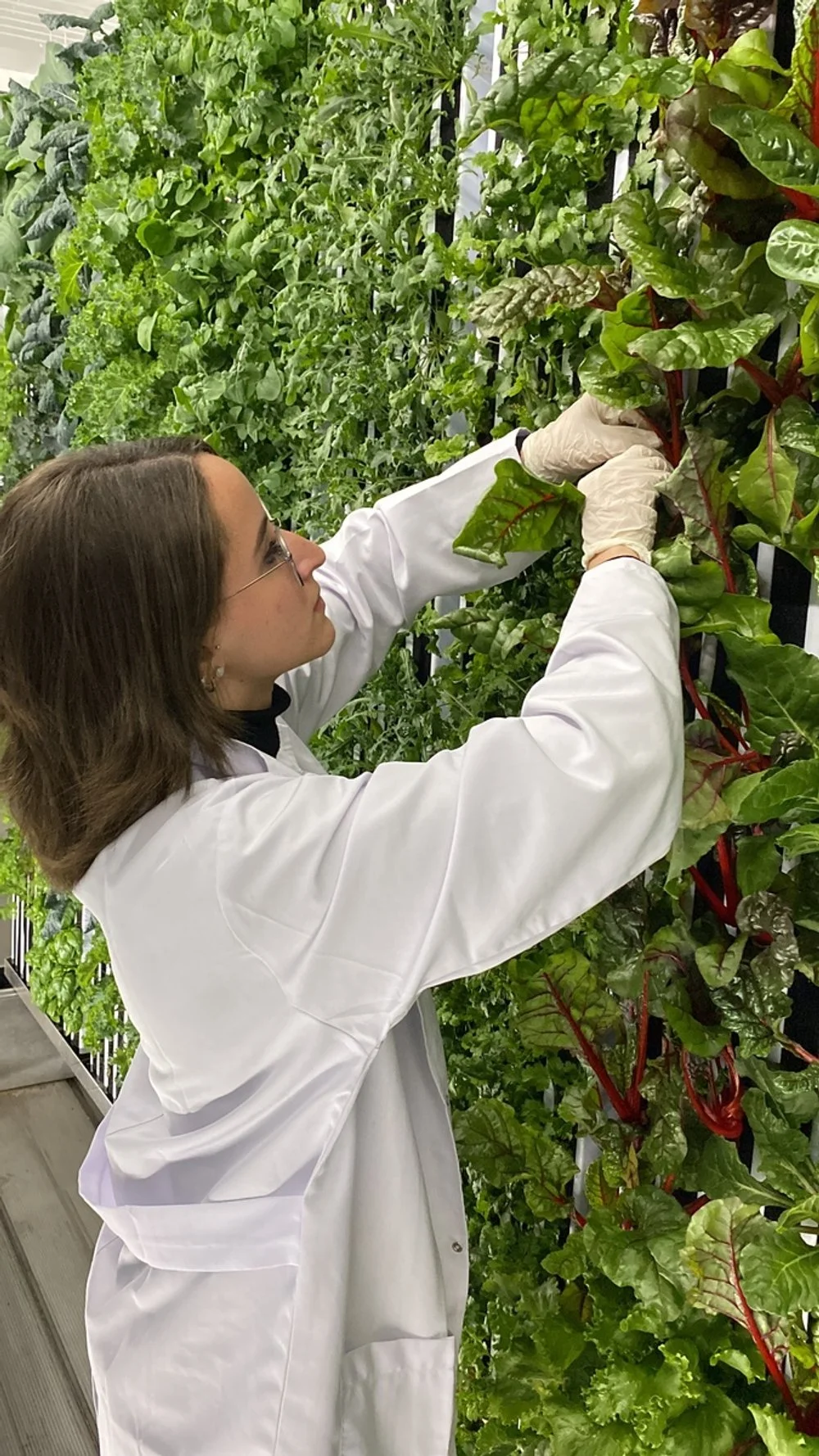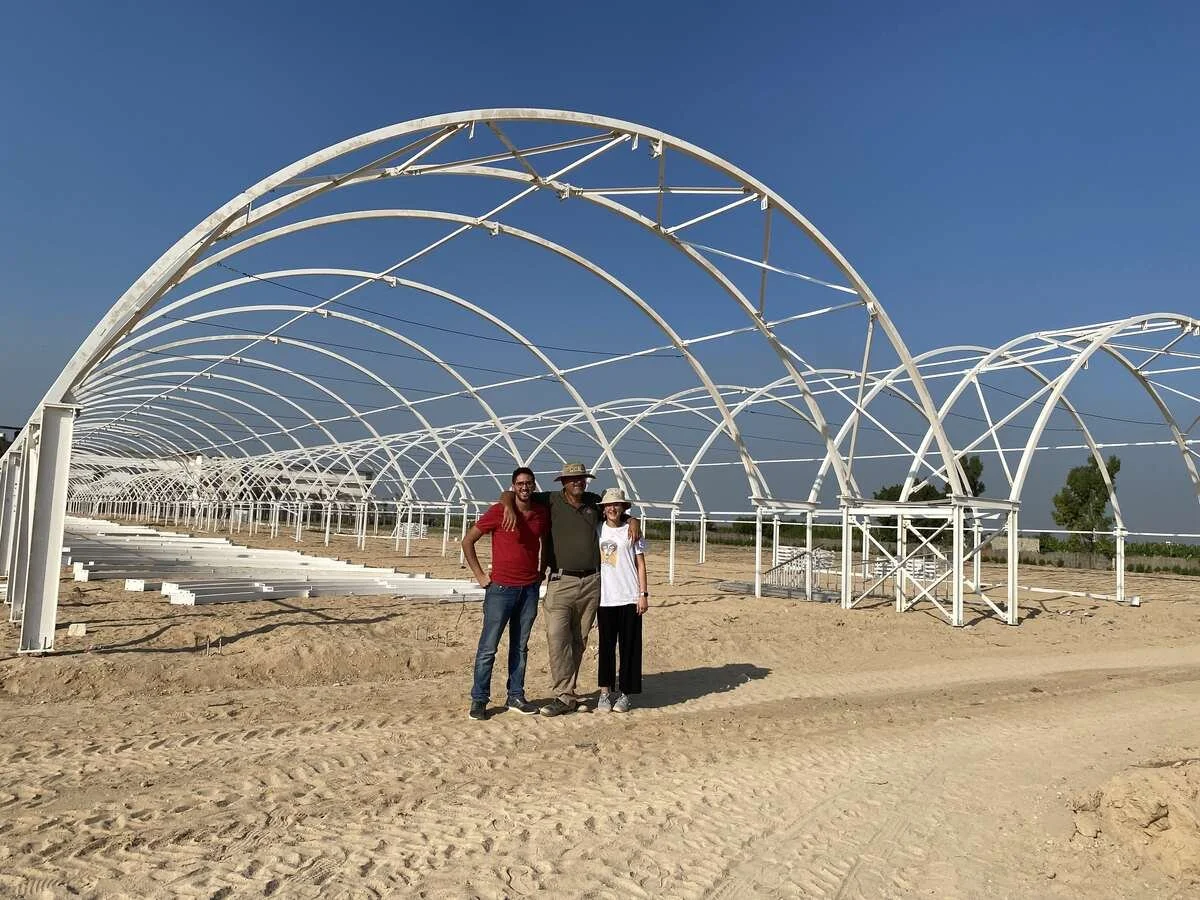Farming Anywhere, Anytime: How Tulima Farms Plans To Revolutionize Egypt’s Agriculture
23 JULY 2022
Courtesy of Tulima Farms
“There is a need for healing, indeed.” So opens Ricardo Salvador, an expert in sustainable agriculture practices, in a recent book released this year on climate-smart agricultural solutions. “Within a span of 14 years, we have doubled the amount of heat trapped by the atmosphere.”
United Nations secretary general António Guterres, warned that there is a new threat of “a global food shortage” in the coming months.The price of wheat alone has risen by more than 50 percent, and many countries that have been heavily dependent on food imports are now forced to adopt an entirely new model of locally produced food that is not only environmentally sustainable, but also meets the economic and social needs of the people.
The great issue of our time is that, while there are enormous challenges that need to be addressed, the space for solutions that are simple, as well as easily applied and understood by those who need it the most, is often difficult to find.
The world is currently under immense pressure to transition to a zero-carbon economy as fast as possible, but despite concerns, there is hope of a solution that is simple and includes workers, farmers, and the general population.
Zeina Salama, co-founder of family business Tulima Farms, is part of a movement breaking into farming today. Tying together their passion for revolutionizing agriculture in Egypt to save water and improve livelihoods, Tulima Farms grew from humble origins in the Egyptian governorate Beheira, to becoming a 25,000 square meter, data-driven, climate-controlled, and community-driven, high-yield farm.
The farm monitors and analyzes environmental conditions and controls the environment through different devices such as lighting, curtains, vents, exhaust fans that are all controlled by sensors placed throughout the greenhouses that can measure temperature, carbon dioxide, light, and vapor pressure deficit (VPD) to measure humidity.
By overcoming the risks of common outdoor threats, like fluctuating temperatures and pests, a controlled environment customizes the optimum and ideal conditions for crops to grow, which also means that a variety of crops can be grown at any time throughout the entire year, regardless of the season.
Currently, Tulima can be reached through their website or Instagram page and are also currently working on customizing their website to allow consumers to be able to order the crops directly. To make it more affordable for consumers, and break the stereotype of organic products being more expensive, Tulima aims to increase its production and provide an alternative from other choices in the market.
“Tulima runs and operates four different farming methods,” Salama tells Egyptian Streets. “We grow in grow bags, which are made from recycled plastic bottles, tunnel farming, vertical farming and container farming. We also grow hydroponically – which means we do not rely or grow on soil and use 90 percent less water than conventional farming.”
“This is because the crops grow in a nutrient-rich water solution – we give each plant in our 38 compartments the exact amount of water it needs, and any water residues is recirculated, recycled, and reused repeatedly until the end of the month, and then leached in our open-field farming.”
Globally, scientists and researchers are looking for ways to feed a world population that may reach 10 billion in the next 50 years, in a way that ensures growth of the most food on the least amount of land and with minimal environmental impact.
To achieve this, soilless farming allows Tulima Farms to consume only a fifth of the land needed for the same amount of plants on a traditional farmland, and at the same time ensure a much higher yield.
At the heart of Tulima Farms’ vision is also to bridge the yawning disconnect between urban and rural areas, and to break away from the idea that a farm can only grow in the countryside. Aiming to change the relationship between the farmer and the consumer, Tulima Farms creates an ecosystem that is based on a new concept of farm to table, or farm to mouth, where the consumer can have better access and connection with the farms.
Courtesy of Tulima Farms
“Hydroponic controlled-environment farming allows food to be grown in the most unexpected places,” Salama adds. “For example, the mobile CityFarms containers can be relocated in the middle of the desert. Powered by solar panels, and given 20 liters of water a week, it can grow the equivalent of 2.5 acres in a box.”
Working with Freight Farms, the world’s most productive hydroponic shipping container farm, Tulima has two mobile 40-foot (67.7 cubic meters) shipping containers that were transformed into a full farm from seed to harvest, and grows leafy greens and herbs such as basil, mint, spinach, baby spinach, kale, lettuce, and arugula.
“There is no reason why our food needs to travel miles to reach us,” Salama says. “Centuries ago, families relied on local and family farms for food, but industrialization and urbanization made agriculture an industry rather than a community supply. There is no reason why Egypt should be importing arugula during the summer, when it’s one of the easiest crops to grow given the right conditions and environment, instead we should grow it locally.”
To most people, a bag of mint is simply a bag of mint. Yet the strength of crop diversity is that it tells the stories of the region that is most popular in growing that particular crop. Tulima Farms brings to life these stories, growing a diversity of crops that are not usually grown on Egyptian farms to celebrate the uniqueness of each region, and the common heritage of what Egyptians eat.
“One of the biggest benefits of container farming is that it doesn’t require vast swathes of land or a dedicated building to grow. Container farms can be in deserted areas, hotel chains, restaurants and gated compounds, making it possible to bring fresh food to areas where it’s impossible to grow crops, or to the city,” Salama notes.
Last November, the container farms traveled from El-Behira to Cairo to be showcased at an event by the General Authority for Investment to showcase the environmental benefits and impact of Tulima Farms, and traveled to the American International School in Egypt (AIS)’s main campus to teach school children about new approaches to farming.
“Our plan is to move the containers in remote and touristic places like Gouna or the North Coast, where they usually wait for their food to be transported from Cairo, and also to move around Cairo to allow our customers feel that they are close to the farm and that the farm is in their city,” she adds.
When it comes to sustainable agriculture, it is not simply a matter of crops and land, but also of humans. With more funding and resources channeled to technological solutions, this can potentially distract attention from more challenging social problems, such as unemployment and a burgeoning young population that needs to be constantly reskilled to meet the future job demand.
To meet these rising social challenges, Tulima puts the community in Beheira at the core of its strategy to improve livelihoods and introduce sustainable solutions to the wider general public. Providing opportunities for growth, education, and leadership in the area, all of Tulima Farms’ greenhouses were built by local workers who are now full-time Tulima employees after going through an intensive training period to be able to execute the technology.
To give back to their community and maintain social responsibility, Tulima encourages women in the area to join the male-dominated field of agriculture. They support, teach, and train women to be core members of the team, stay on the farm and also benefit from education and leadership opportunities in the area.
There is also on-site training for farmers, which teaches them important computer and technological skills, writing, reading, and hydroponic farming for the community.
“You can definitely notice the keen interest from the farmers’ questions who have been farming the same way for centuries and across family generations,” Salama says. “The interest is there, but it’s all about taking a step and investing in teaching, training and supporting – which is all what Tulima is about.”
Rather than following the demands of global markets, fluctuating prices and large corporations, Tulima Farms pushes the idea of food sovereignty through putting the needs of those who produce, distribute, and consume food at the heart of food systems.
Instead of just being about the technology or the crops, Tulima Farms develops its own supply chain to connect farmers with consumers; creating its own local market that sells a variety of crops and encourages farmers to connect more deeply with their farm beyond the hassle of international market prices and profit, and more about producing healthy and nutritious food.
Lead photo: Courtesy of Tulima Farms




